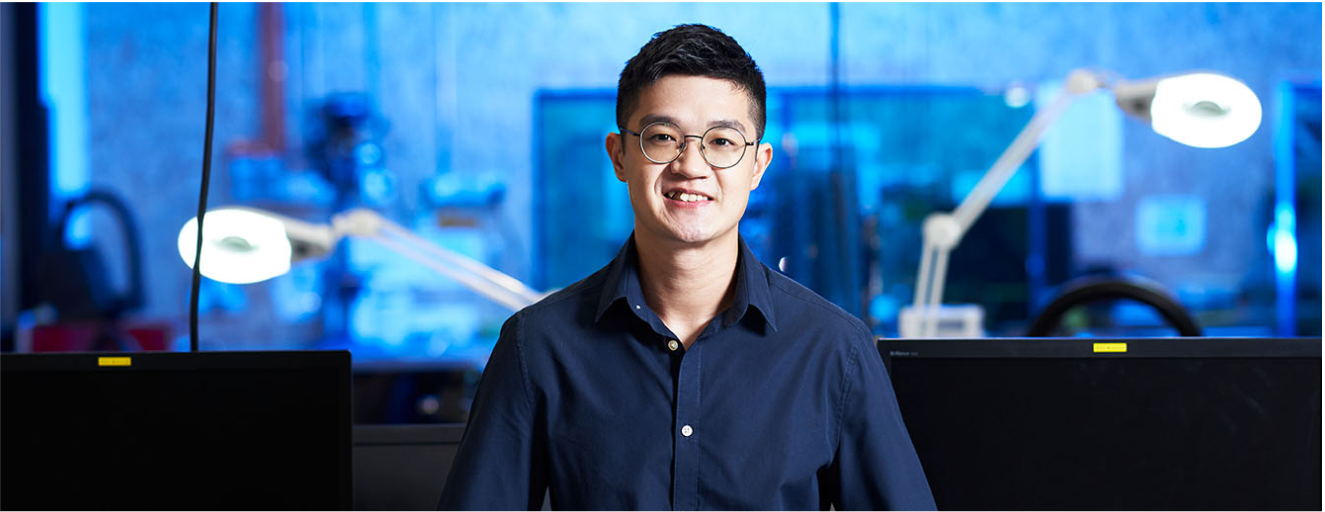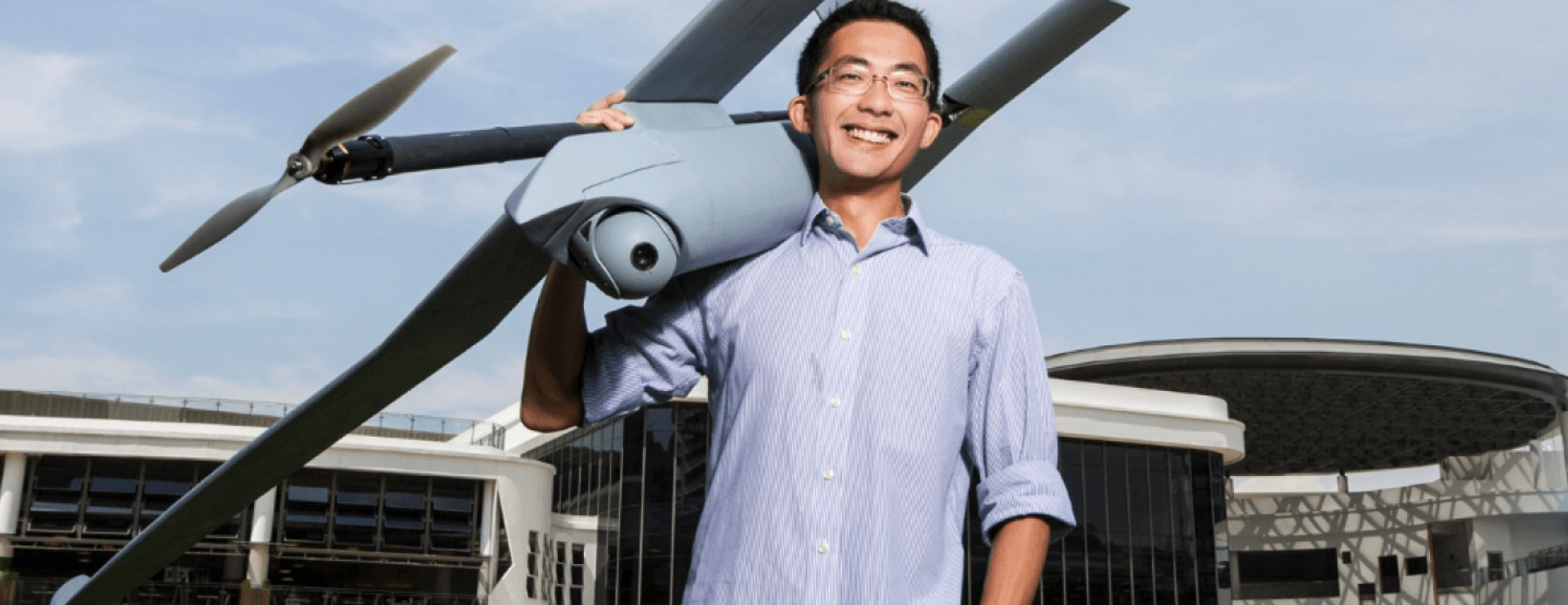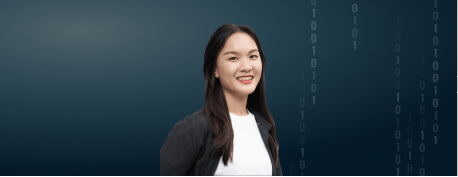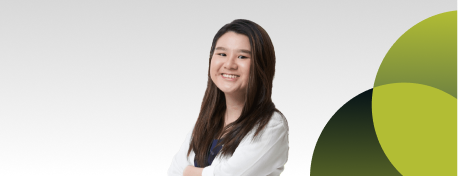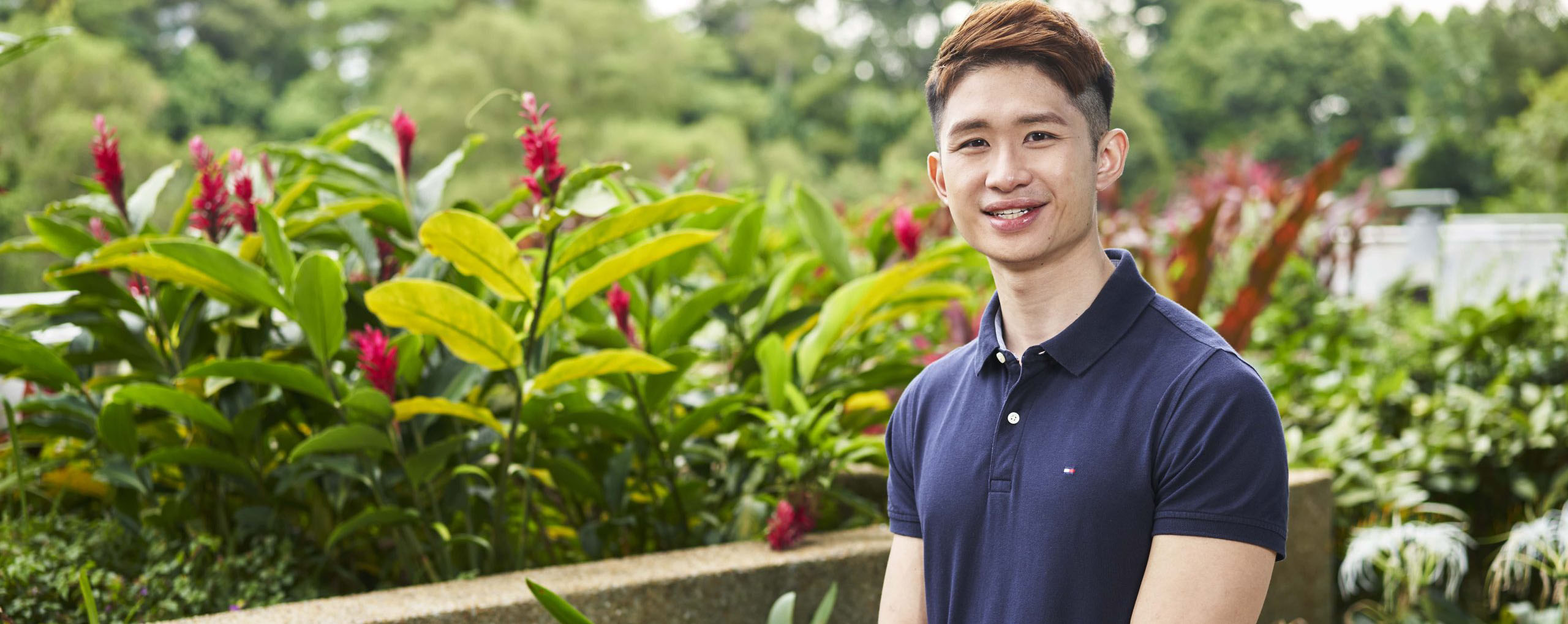“I get to solve challenging problems, work with the smartest engineering minds in Singapore, and contribute to the security of my countrymen.”
Tong Poh Bee graduated from Nanyang Technological University (NTU) with a Bachelors in Mechanical Engineering in 2000. Upon graduation, her passion for hands-on engineering work and a desire to contribute to something larger than professional success motivated her to join DSO’s Underwater Programme (UWP) as a mechanical engineer. After spending the early years of her career working on mechanical engineering tasks, she decided to make a bold career switch and take on a new challenge – developing algorithms for underwater acoustics signal processing.
This decision was a big leap of faith and confidence not just for her, but also for her then-bosses. They later sent her to Pennsylvania State University for a summer course in underwater acoustics. Being the first in her division to be sent for this intensive course, the pressure was high.
“It was many days of stressful classes and burning the midnight oil,” Poh Bee recalls. “What awaited at the end – on a weekend – was two exam papers which I knew I had to excel to prove myself and justify the organisation’s investment in sending me for the course.”
But the gruelling course was not the only challenge she faced. On the second night, her hostel room was almost broken in while she was deep asleep! She spent the next day scrambling between campus and looking for a safer accommodation.
Despite the challenges, she did well in the exam which boosted her confidence and set the foundation in her journey with underwater acoustics. Eventually, the same exam would be the de facto “quiz” that every new team member takes in their first year of joining DSO’s UWP.
In the ever-evolving engineering field, new technologies rapidly emerge while old methodologies are challenged and replaced. For Poh Bee and many others, continuous learning is therefore a necessary part of their DNA in order to keep up with the latest developments and prevent their own work from becoming obsolete. With a limited community of support for any solutioning processes, she and her team operate in a unique space – a space that challenges their abilities daily and requires them to think creatively while solving VUCA (volatile, uncertain, complex, and ambiguous) problems.
Her own prowess, combined with all the tools she was given to excel, along with the support and patience from many seniors in UWP, saw her career rise to greater heights. 2011 proved to be a major milestone as she took on her first management appointment, leading a newly formed team of young engineers and researchers. They were inexperienced, but made up for it with their drive and vision.
Poh Bee thus faced a new challenge – learning to be the leader of a team. Thankfully, her boss and mentor, Mr Goh Ing Nam, was a great pillar of strength at work. Her other colleagues and bosses also pushed her to attend relevant local and overseas courses and conferences, to build up her technical and core skills. They provided her with invaluable advice, guidance and encouragement. With more exposure to the wider local ecosystem and the international community, she could see how her work measured against the rest of the industry and community. Thus, she was able to position the relevance of her work and also pitch its quality in a more realistic context.
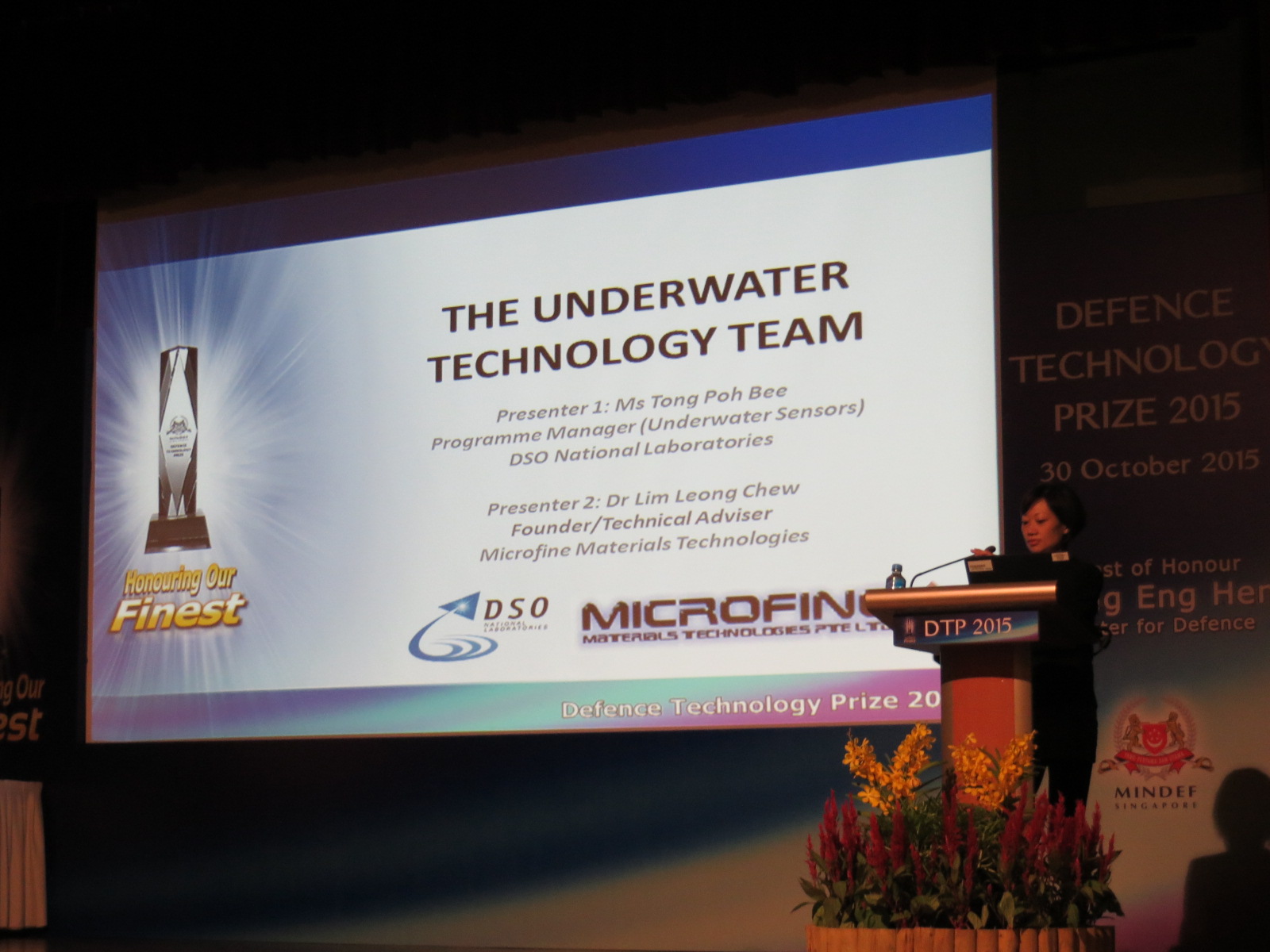
“When I attended DSO-run management courses, I met kind colleagues who would share their own experiences in their early management journey, some even wrote personal encouraging notes to me.”
Facing challenges at work is not only inevitable, but necessary for personal and professional growth. It’s important to recognise when one needs help, but equally important to ask and accept it for yourself (even if you didn’t think you needed it). Being a superman or superwoman is not helpful if one is burnt out.
Poh Bee later took on a dual role as Programme Manager for the Marine Systems Programme and Underwater Sensors. As the team leader, she led them to integrate the first experimental sonar onto the Meredith 400 Autonomous Underwater Vehicle (M400 AUV). The M400 AUV was designed to overcome the challenges towards detecting underwater threats in Singapore’s busy shipping lanes, where thousands of ships pass through daily.

This was no easy feat as current market solutions do not cater for this. Conventional sonar scanners only work by emitting audio pulses and measuring the echo characteristics of objects in water. As such, its performance is affected by strong undercurrents and the noisy, shallow sea waters of Singapore.
To overcome this challenge, the team designed a Synthetic Aperture Sonar (SAS), which can be fitted onto the M400 AUV. The SAS can classify underwater threats with high accuracy and low false alarm.
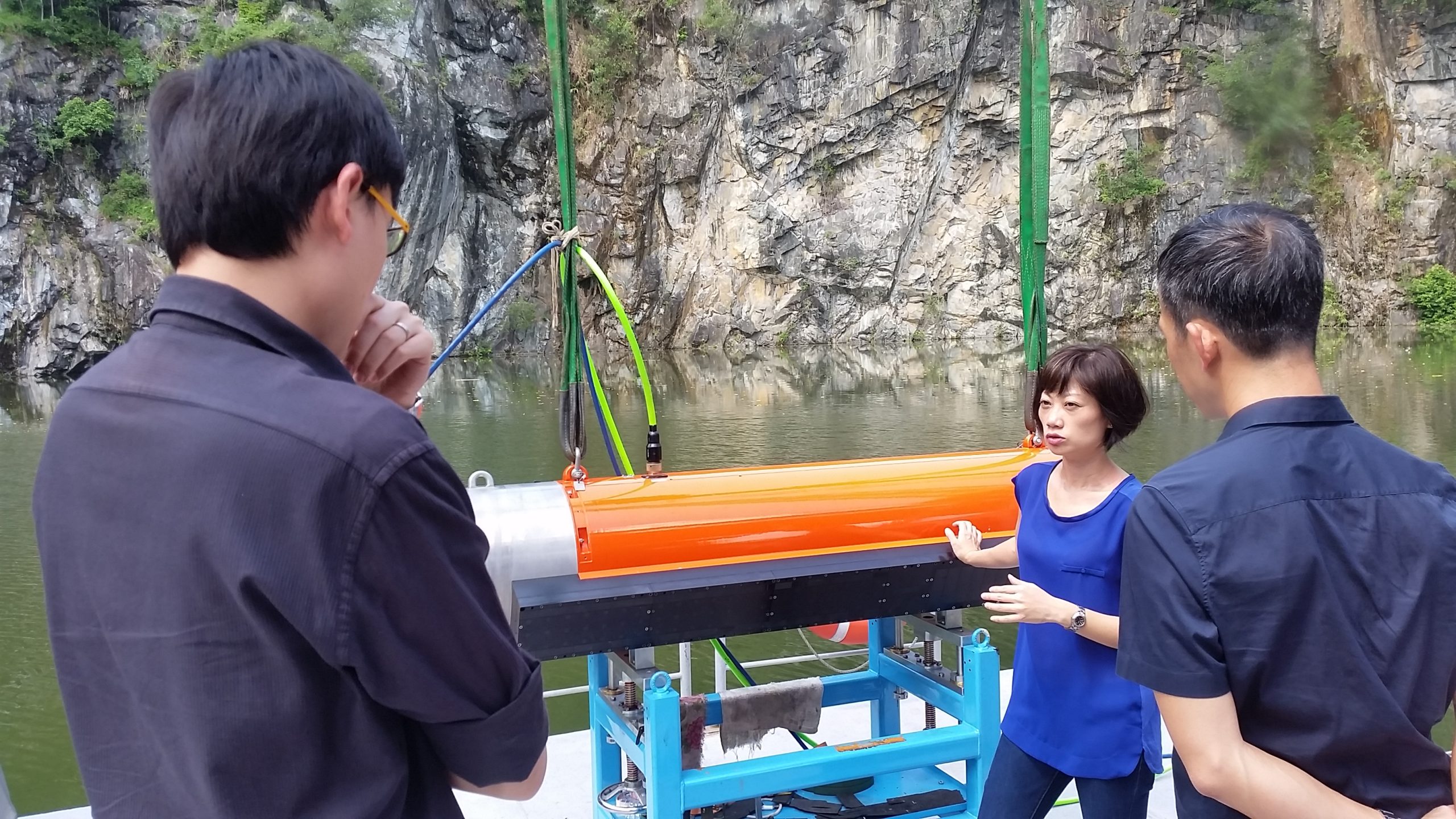
The M400 AUV is, to date, one of the world’s smallest AUVs to be fitted with the high-end SAS.
From leading a project to leading a programme, Poh Bee witnessed the passion, drive and capability of the team. These qualities enabled them to endure many technical and programmatic challenges.
“People are our greatest asset – we cannot deliver great solutions if we don’t have the right people and supporting structure to enable it.”
Today, Poh Bee is our Director of Underwater Systems in the Sensors Division, leading a growing team of research engineers and scientists to deliver underwater technological surprises to the Singapore Armed Forces (SAF). As a director of a core R&D programme, there’s never a dull moment. Poh Bee combines her engineering know-how, people management, product development and road-mapping skills on a daily basis. The people surrounding her also continue to make vital contributions to her professional development. Poh Bee has the opportunity to seek advice from senior colleagues, direct supervisors, and partners in SAF and MINDEF when she needs to bounce off work challenges. With these resources, she usually finds an alternative perspective that helps her develop more robust solutions.
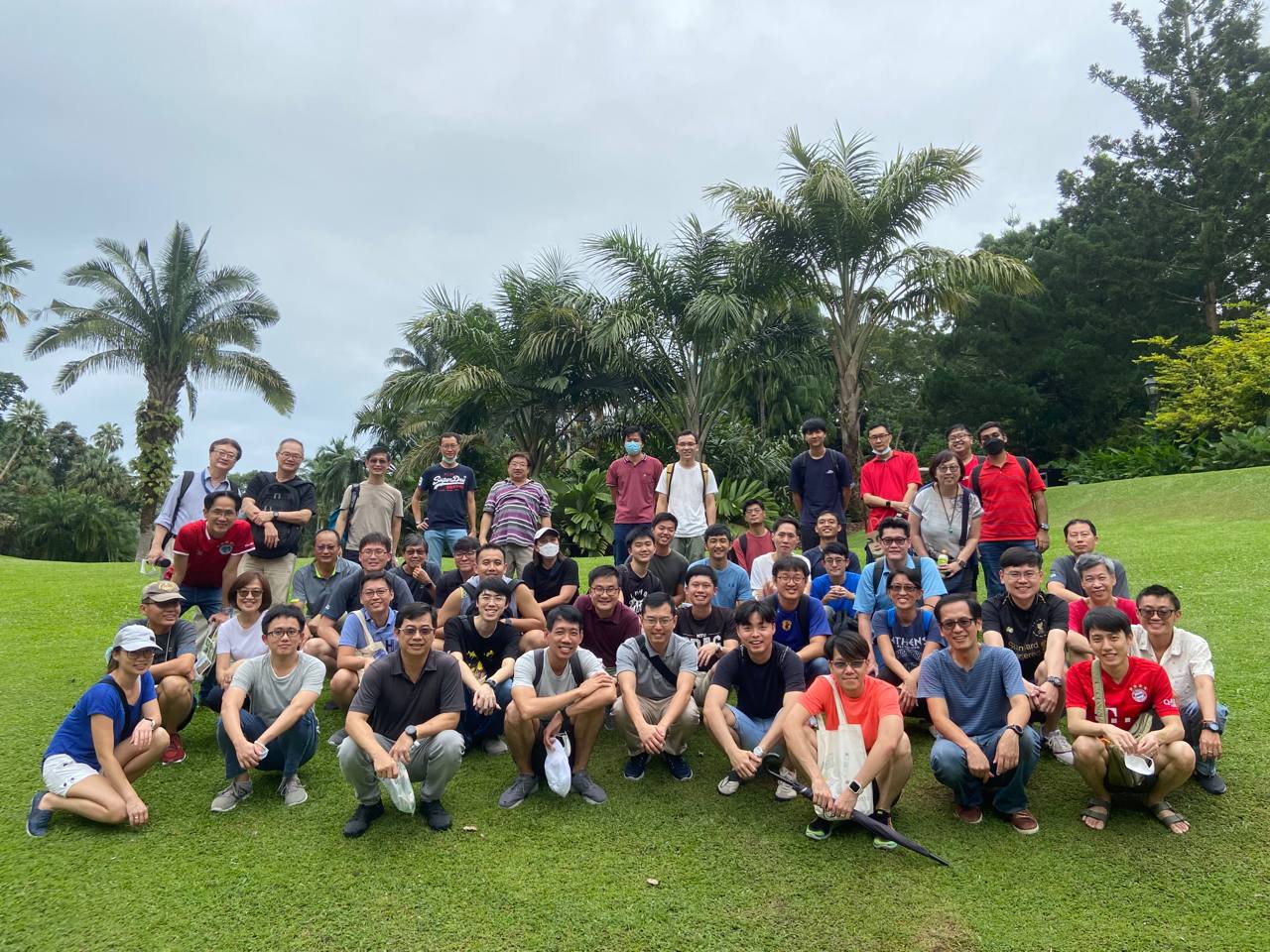
Talking to people, both senior and junior, is a big part of her learning journey, along with her open-mindedness to learn from everyone she meets. She embraces valuable opportunities to connect with others through DSO and MINDEF-organised leadership courses. Some examples include DSO’s Leadership Programme and Defence Management Systems Course, and getting to network with subject matter experts from the SAF and Defence Science and Technology Agency on project matters. Recently, and most notably, she had her secondment with MINDEF’s Future Systems and Technology Directorate.
Poh Bee has had a long and fruitful journey with us – but, importantly, a journey where she was never alone. Throughout her time at DSO, different mentors have been instrumental to her career. With their guidance, her technical competencies and leadership mindset have grown beyond her expectations. Now a mentor herself, Poh Bee strives to leave a legacy not just in her work, but in growing the next generation of engineers and leaders who can continue to push the boundaries of science and technology.
Even after 22 years in DSO, Poh Bee’s mission is far from over. There’s always a new problem to solve to keep her intellectually stimulated alongside engaging and passionate colleagues. There is no other place of employment she can imagine that offers this, while also contributing to the defence of the nation.
Find similar fulfilment in your work and enjoy the challenge of continuous learning and development with us, all while playing an important part in the nation’s security. Just like Poh Bee.


